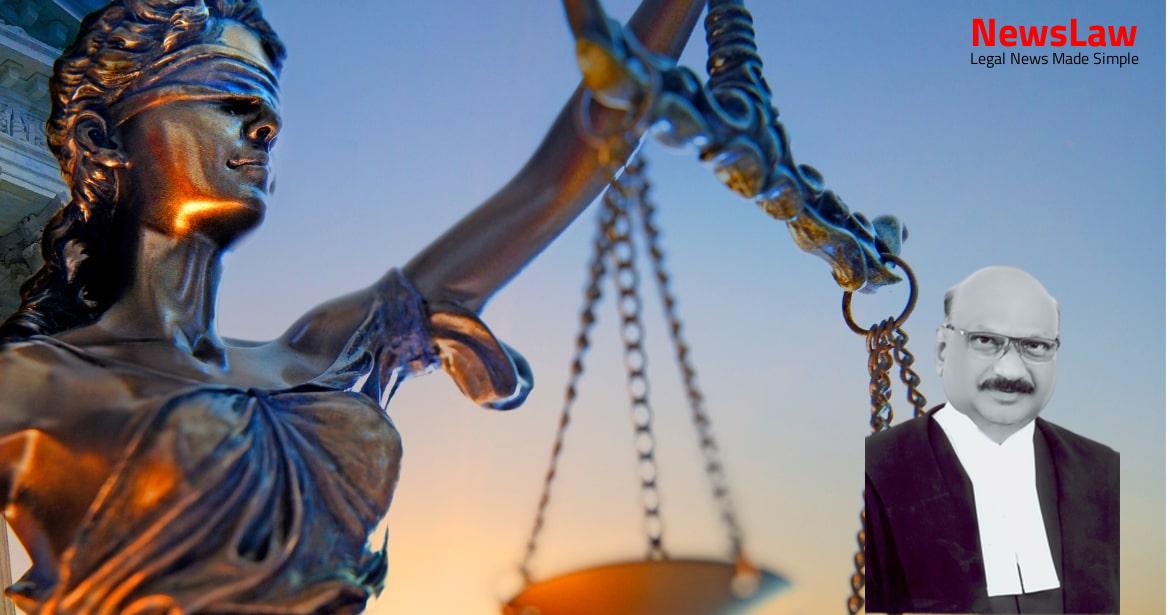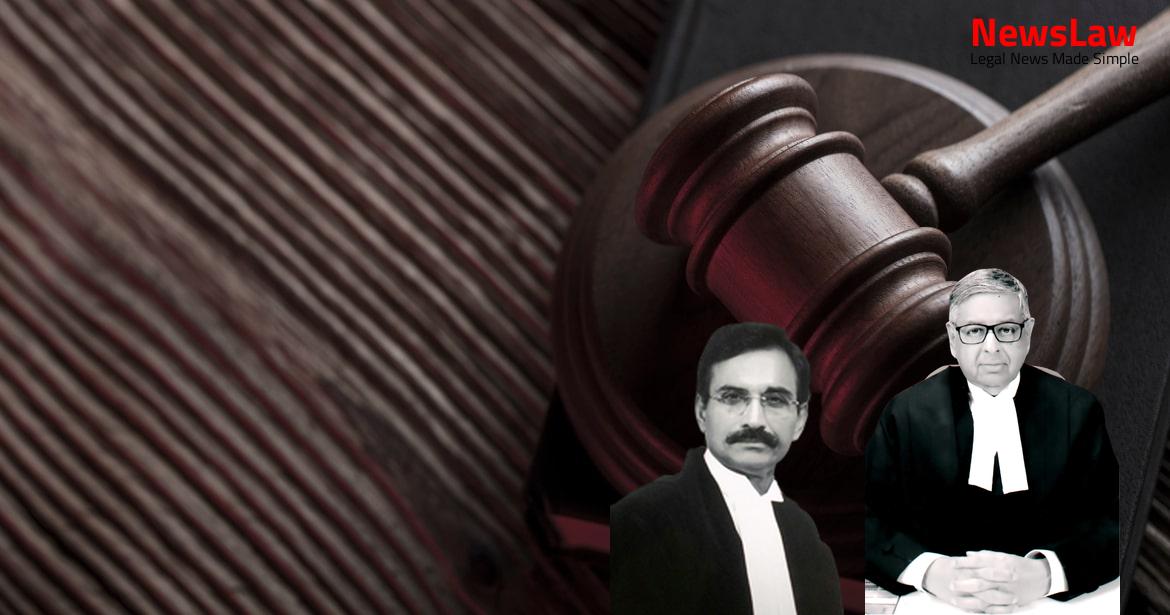Explore a detailed legal analysis focusing on reservation in promotions and seniority benefits in a recent court case. The case revolves around the constitutional provisions pertaining to SC/ST reservations in promotions and the application of the ‘Catch Up Rule’ principle. Discover the complexities of quantifiable data requirements and the implications on seniority in promoted posts based on relevant precedents and constitutional amendments.
Facts
- The Civil Appeal is filed against the judgment and order dated 24.12.2010 by the High Court of Orissa.
- The respondent-writ petitioners were promoted to the Orissa Administrative Service-I (OAS-I)(JB) in 2000.
- The appellants and others in the SC/ST category were promoted to OAS-I(JB) against reserved vacancies in 1995 and 2000.
- The respondent-writ petitioners were senior to SC/ST appointees.
- Constitution (85 ) Amendment Act of 2001 amended Article 16(4A) for promotion with consequential seniority for SC/ST officers.
- The order passed in favor of respondent nos. 4 to 8 set aside the previous order and quashed Government Resolution and Gradation List.
- The Government of Orissa passed a Resolution in 2002, withdrawing earlier instructions for fixing seniority of SC/ST officers.
- The Catch Up Principle was no longer followed as per the new Resolution.
- The Orissa Administrative Tribunal dismissed the Original Application filed by the respondent-writ petitioners.
- In the merit list, SC/ST appointees were placed below the writ petitioners who were appointed against reserved vacancies.
- The High Court quashed a Government Order and Gradation List that denied SC/ST candidates seniority in promoted posts.
- The Court held that SC/ST candidates are entitled to seniority in promoted posts as per the rule of reservation.
- The judgment followed the precedent set in the case of M. Nagaraj & Ors. v. Union of India & Ors.
- SC/ST candidates will retain seniority in promotions by virtue of the reservation rule.
- General/OBC category candidates promoted later will be placed junior to SC/ST candidates promoted earlier.
Also Read: Ensuring Constitutional Rights: Analysis of Default Bail in Legal Case
Arguments
- Orissa Act 38 of 1975 provides reservation benefits to scheduled castes and scheduled tribes in promotions as well.
- Section 10 of the Orissa Act 38 of 1975 entitles promoted SC/ST candidates to the benefit of seniority.
- After the 85th Constitution Amendment amending Article 16(4A), there has been no specific legislation or executive order in Orissa extending promotion benefits to reserved vacancies with consequential seniority.
- The government restored seniority for general category officers in the Gradation List of OAS-I(JB) following the ‘Catch Up Rule’ from the Virpal Singh Chauhan case, later accepted in the Ajit Singh (II) case.
- The High Court quashed the government’s decision by way of Resolution dated 20.03.2002 without valid reasons.
Also Read: Analysis of Teacher Appointments Policies
Analysis
- State is not bound to make reservation for SCs/STs in promotions.
- If State wishes to reserve promotions, it must collect quantifiable data on backwardness and inadequate representation.
- Reservation provision should not breach the 50% ceiling, obliterate creamy layer, or extend reservation indefinitely.
- Reserved promoted candidates are not entitled to seniority over general category candidates.
- Quantifiable data and inadequacy of representation are conditions for notifications providing reservation with seniority.
- States have discretion to determine adequate representation depending on the promotional post in question.
- Catch Up Rule applies in absence of mandatory exercise by the State for determining representation in promotions.
- Catch Up Rule principle upheld in the case of Virpal Singh Chauhan and subsequently in the case of Ajit Singh (II).
- Quantifiable data requirement from M. Nagaraj judgment invalid due to conflict with Indra Sawhney judgment.
- The judgment analyzes the absence of provision in the Act for conferring seniority benefits
- It mentions that the Resolution lacks a legal basis for extending seniority benefits
- The preparation of the Seniority/Gradation List is discussed in relation to the correct application of court rulings
- The judgment highlights the lack of law or executive order supporting the conferment of additional seniority benefits
- It references the Constitution Bench ruling stating that the State is not obligated to provide reservations in promotion
- The validity of the Karnataka Act related to reservation and seniority is upheld based on a study
- The failure of Orissa to make provisions post the Constitution Amendment enabling promotion with consequential seniority is pointed out
- The issue of SC/ST officers promoted in reserved vacancies without seniority benefits is raised
- The Resolution of 20.03.2002 is critiqued for lacking legal basis and adequacy in representation assessment
- The High Court’s decision to quash the Resolution and Gradation List is discussed
- The State’s admission of not issuing executive orders or legislation for seniority benefits is highlighted
- Article 16(4A) of the Constitution allows for reservation in matters of promotion with consequential seniority for Scheduled Castes and Scheduled Tribes.
- State is empowered to make a provision for reservation in promotion if SC & STs are not adequately represented in the services.
- The provision allows for reservation to any class of posts in the services under the State.
- The validity of the constitutional amendment was questioned.
- The validity was upheld by the Court in the case of M. Nagaraj.
- A Constitution Bench of the Court confirmed that the judgment in M. Nagaraj should not be revisited by referring to a seven-Judge Bench.
- The need to examine adequate representation in posts as per the M. Nagaraj case is upheld for giving the benefit of promotion with consequential seniority.
- The judgment in the Jarnail Singh case does not advance the case of the appellants.
- The respondent-State has not extended any benefit of seniority by examining adequate representation under Article 16(4A) of the Constitution.
- The appeal lacks merit to interfere with the well-reasoned judgment of the High Court.
Also Read: Rectification of Consent Decree in Property Dispute
Decision
- The appeal is dismissed with no order as to costs.
- The appellants in this appeal, who were not parties before the High Court, sought the same relief as in another appeal.
- Since the other appeal was dismissed, this appeal is also dismissed.
Case Title: PRAVAKAR MALLICK Vs. STATE OF ORISSA . (2020 INSC 339)
Case Number: C.A. No.-003240-003240 / 2011



